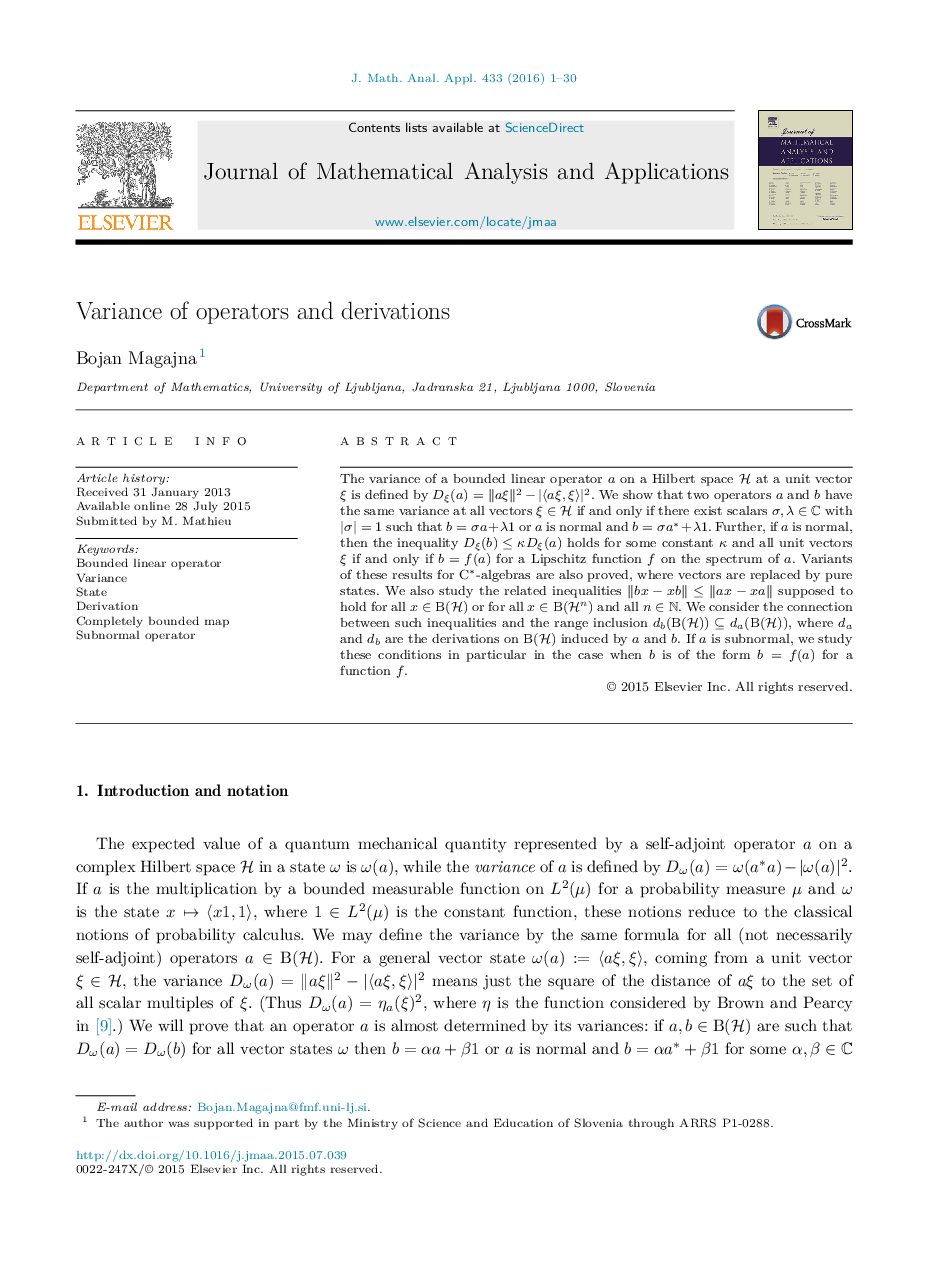| کد مقاله | کد نشریه | سال انتشار | مقاله انگلیسی | نسخه تمام متن |
|---|---|---|---|---|
| 4614766 | 1339299 | 2016 | 30 صفحه PDF | دانلود رایگان |
The variance of a bounded linear operator a on a Hilbert space HH at a unit vector ξ is defined by Dξ(a)=‖aξ‖2−|〈aξ,ξ〉|2Dξ(a)=‖aξ‖2−|〈aξ,ξ〉|2. We show that two operators a and b have the same variance at all vectors ξ∈Hξ∈H if and only if there exist scalars σ,λ∈Cσ,λ∈C with |σ|=1|σ|=1 such that b=σa+λ1b=σa+λ1 or a is normal and b=σa⁎+λ1b=σa⁎+λ1. Further, if a is normal, then the inequality Dξ(b)≤κDξ(a)Dξ(b)≤κDξ(a) holds for some constant κ and all unit vectors ξ if and only if b=f(a)b=f(a) for a Lipschitz function f on the spectrum of a. Variants of these results for C⁎-algebras are also proved, where vectors are replaced by pure states. We also study the related inequalities ‖bx−xb‖≤‖ax−xa‖‖bx−xb‖≤‖ax−xa‖ supposed to hold for all x∈B(H)x∈B(H) or for all x∈B(Hn)x∈B(Hn) and all n∈Nn∈N. We consider the connection between such inequalities and the range inclusion db(B(H))⊆da(B(H))db(B(H))⊆da(B(H)), where dada and dbdb are the derivations on B(H)B(H) induced by a and b. If a is subnormal, we study these conditions in particular in the case when b is of the form b=f(a)b=f(a) for a function f.
Journal: Journal of Mathematical Analysis and Applications - Volume 433, Issue 1, 1 January 2016, Pages 1–30
